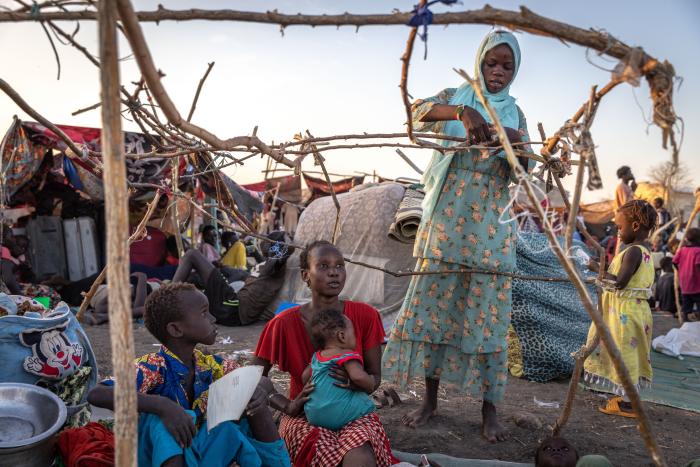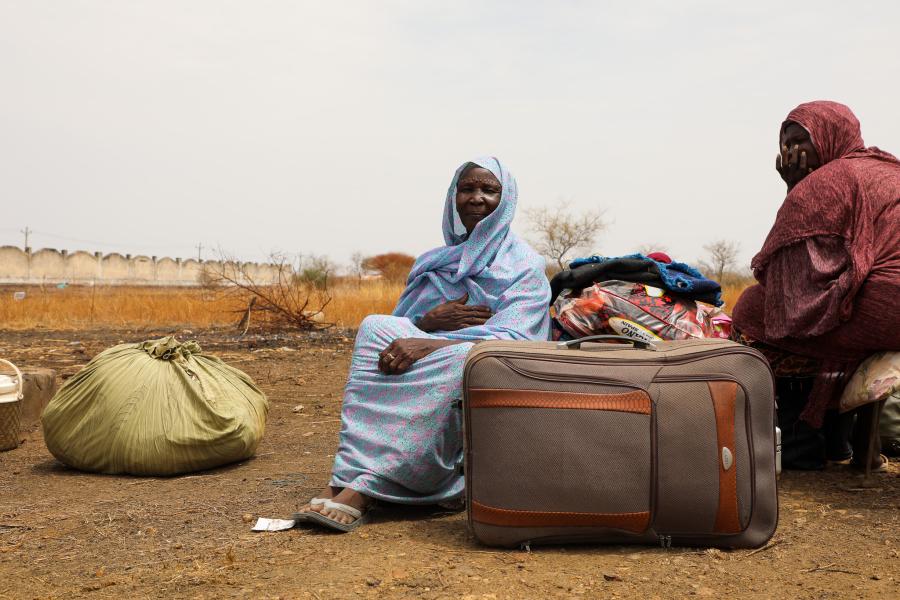2024 population planning figures
- Refugees and asylum-seekers: 2,235,500 (82% are women and children)
-
IDPs: 2,392,236
-
Refugee returnees*: 763,402
-
Stateless persons: 18,000
*Cumulative refugee returnees since 2017. Some of these recorded returns may represent pendular movements.
For the reported figures consult the dedicated page on UNHCR operational data portal.
2024 situation overview
The South Sudanese refugee population, more than 65% of whom are children, remains extremely vulnerable. This protracted situation is the largest refugee situation on the African continent. Over 2.2 million refugees hosted in neighbouring countries live in often precarious conditions that are exacerbated by factors such as the extreme drought and the food insecurity situation in the region. Over 41,000 South Sudanese fled to neighbouring countries in the first nine months of 2023, while 272,000 returns were recorded.
After nearly a decade of conflict and despite efforts toward implementing the peace agreement, South Sudan continues to grapple with sporadic violence, chronic food insecurity and devastating flooding, often detracting from humanitarian achievements.

The UNHCR non-return advisory advises States against the forced return of refugees to South Sudan, and UNHCR does not facilitate the return. However, over 763,000 have chosen to return of their own accord since 2017 to areas that are often unable to provide basic services.
UNHCR will continue to implement the “Pockets of hope” initiative to help returning refugees have a successful fresh start.
In South Sudan, developments in the lead-up to elections in December 2024 have the potential to facilitate or derail further the implementation of the "Revitalized agreement on the resolution of the conflict in the Republic of South Sudan" as well as the solutions initiative led by the Intergovernmental Authority on Development. This will affect prospects for sustainable return, reintegration and other durable solutions for the South Sudanese refugees in the region.
More people are likely to be forcibly displaced in 2024, across the borders into Kenya, Uganda and to a lesser extent Ethiopia. However, spontaneous returns of South Sudanese are expected to continue from the Democratic Republic of the Congo, Ethiopia and Uganda, while larger numbers are anticipated from Sudan in the wake of the conflict that broke out there in April 2023.
UNHCR will continue support to host countries to uphold the quality of asylum for South Sudanese refugees in the region, especially for women and children, who make up the majority of refugees. Life-saving support will include preventing and responding to gender-based violence as well as contributing to gender-based violence risk mitigation throughout the response. Legal and physical protection will be strengthened and biometric registration, documentation and data management in collaboration with host governments will be enhanced. UNHCR will promote social cohesion between refugees and host communities, as well as working with asylum countries to achieve comprehensive and sustainable solutions. UNHCR’s operation in South Sudan will require sustained support to facilitate logistics and reintegration of returnees who have been forced to return prematurely due to the ongoing conflict in Sudan. UNHCR will also maintain readiness for any possible displacement linked to the general election scheduled in 2024.
The South Sudan Regional Refugee Response Plan includes 108 partners and will cater to the needs of 2.2 million South Sudanese refugees in the Democratic Republic of the Congo, Ethiopia, Kenya, Sudan and Uganda in 2024.









